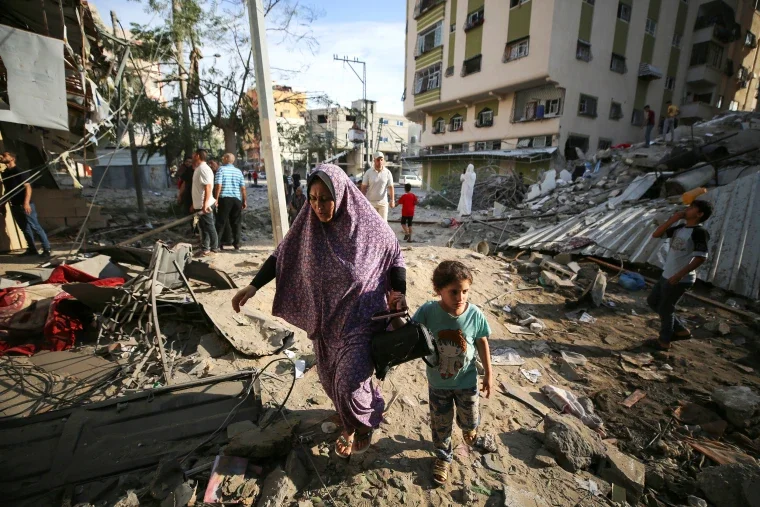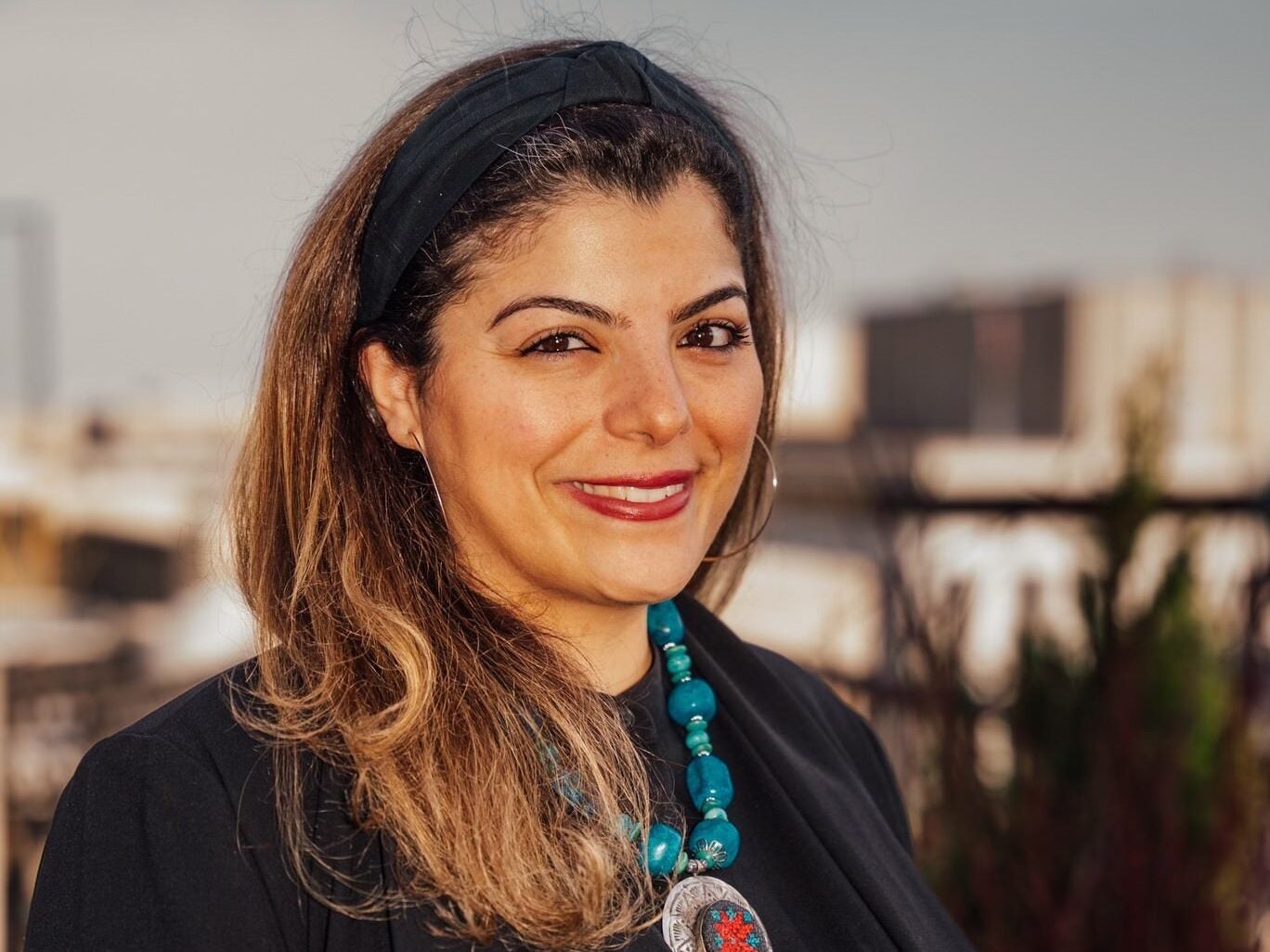Navigating Arab American Heritage Month During the Gaza Crisis
By Laila Mokhiber, WWPR member
April 16, 2024

As we reach the halfway point of Arab American Heritage Month (April), I need to pause and reflect with you, fellow Washington Women in Public Relations (WWPR) members. Last year, I wrote you a guide for honoring and lifting up Arab American voices. But this year feels different—more sobering, more pressing, and much more personal.
In the last six months, the crisis in Gaza has affected me deeply, both in my professional role as Director of Communications for UNRWA USA and in my identity as an Arab American woman with Palestinian and Lebanese roots. The tragic killings of more than 33,000 Palestinians, including over 14,500 children, are unacceptable and have left me heartbroken and depressed. Thousands more are buried under the rubble and presumed to be dead. These aren’t just numbers; they have names. I personally know and am affected by the loss of friends, nearly 200 colleagues, and family members of many people I care about. I mourn my friends Rushdi and Refaat, who I spent time with in Gaza City just two summers ago, Majed and his family, the brother and relatives of my dear friend and colleague Hani. All were taken from us in the darkness of the night by Israeli airstrikes. May the memories of all those killed be eternal.

Right now, the worst humanitarian crisis of our time and a human-made famine may mean millions will starve to death, intensifying the suffering of those already forcibly displaced. Famine is setting in because Gaza is under siege, and aid is trickling in at a snail’s pace. In some areas, there’s no aid at all. People are resorting to eating grass and animal feed just to survive. No one is safe, not even aid workers. For our Arab American friends, especially Palestinians, this is more than just news. We're agonizingly witnessing in real-time the stories of our people being killed and displaced from their homes, just like our grandparents were 76 years ago during the Nakba (the original catastrophe). We are mourning the loss of homes, memories, and loved ones, and we’re not okay. In an effort to save their families, many Palestinian American friends are scrambling to raise tens of thousands of dollars through GoFundMe campaigns to try and evacuate them, with no guarantees of safety and the agonizing prospect of not being allowed to return to their land ever again.
In the midst of this crisis, young citizen journalists and content creators in the Gaza Strip, names you should now know, have emerged as the voices of their communities. Names like Motaz, Hind, Bisan, Plestia, and dozens of others represent the courage and resilience of those who refuse to be silenced. Armed with nothing but their phones, cameras, and a fierce determination to share their truths, they offer firsthand narratives that shed light on the harsh realities facing Palestinians, stirring a range of emotions and prompting difficult conversations. Through raw and unfiltered accounts, these brave individuals provide a window into the daily struggles and the seven-decades-long plight of the people of Palestine. Despite facing immense danger, they continue documenting the realities on the ground, often at great personal risk. Tragically, this commitment to truth-telling has come at a cost — at least 95 journalists have been killed in Gaza since October 2023.
Through emotionally evocative videos, harrowing photos, and thought-provoking articles, these young folks are challenging entrenched misconceptions and amplifying voices long suppressed and silenced in mainstream discourse. Witnessing their courage, determination, and steadfastness leaves me humbled. As an Arab American woman in communications, these stories reinforce why I do what I do. Misinformation is too often used to justify tragedies like the one we’re seeing in Gaza, so their truths affirm the need for our work. As communicators, we must use our power to shape narratives, influence perspectives, and redefine perceptions with determination and conviction.
I also want to recognize the efforts of Arab American influencers, content creators, and allies during this time. Their efforts are helping bridge the gap between what's happening across Gaza and what people know about it in America.
While Arab American Heritage Month is intended to be a time for celebration and recognition, it's also a reminder of the ongoing struggles and injustices Arab communities face here in the United States and abroad. As we continue to advocate for a permanent ceasefire in Gaza, we must ensure that Arab American narratives are not just heard but also valued.
However, it's also crucial to acknowledge that Gaza is not the only issue that matters to Arab Americans. Across the Arabic-speaking world and within Arab American communities, there are a myriad of challenges ranging from political oppression, cultural stereotypes, economic inequality, and systemic discrimination. In addition to the crisis in the Gaza Strip, other places like the West Bank, including East Jerusalem, Lebanon, Syria, Sudan, and Yemen, are also grappling with complex and urgent issues that demand our attention and care.
As we navigate through the remaining weeks of April, let's approach them with renewed purpose and intention. Here are actionable steps we can all take:
- 🤝Prioritize inclusivity in all communications and initiatives: Let's ensure that DEI principles guide our approach and cultivate spaces where Arab American perspectives are sought out and seen as actual assets.
- 🌍Share Arab American voices: Let’s use our platforms to uplift the stories of our Arab American friends, colleagues, clients, and followers.
- 📚Continue to educate yourself and others: If you aren’t already, follow accounts like the IMEU. Dedicate time to staying informed about current events, historical context, and humanitarian issues affecting the Arab American community, including, but not limited to, the situation in Gaza.
- ❤️Get involved in relief efforts: Give what you can to relief and recovery efforts through humanitarian organizations on the frontlines like UNRWA USA.
- 🕊️Use your voice for change: Stand in solidarity with global efforts and call or write your representatives to urge for an immediate ceasefire, humanitarian aid access, and the release of all hostages.
WWPR embodies a spirit of challenging the status quo and breaking down barriers, as demonstrated through initiatives like its Emerging Leaders Award, which I was privileged to keynote back in 2022. This ethos inspires us to be bold, fearless, and empowered. Together, through our collective efforts, we can foster change and liberation for all—one conversation, one story, one post at a time.